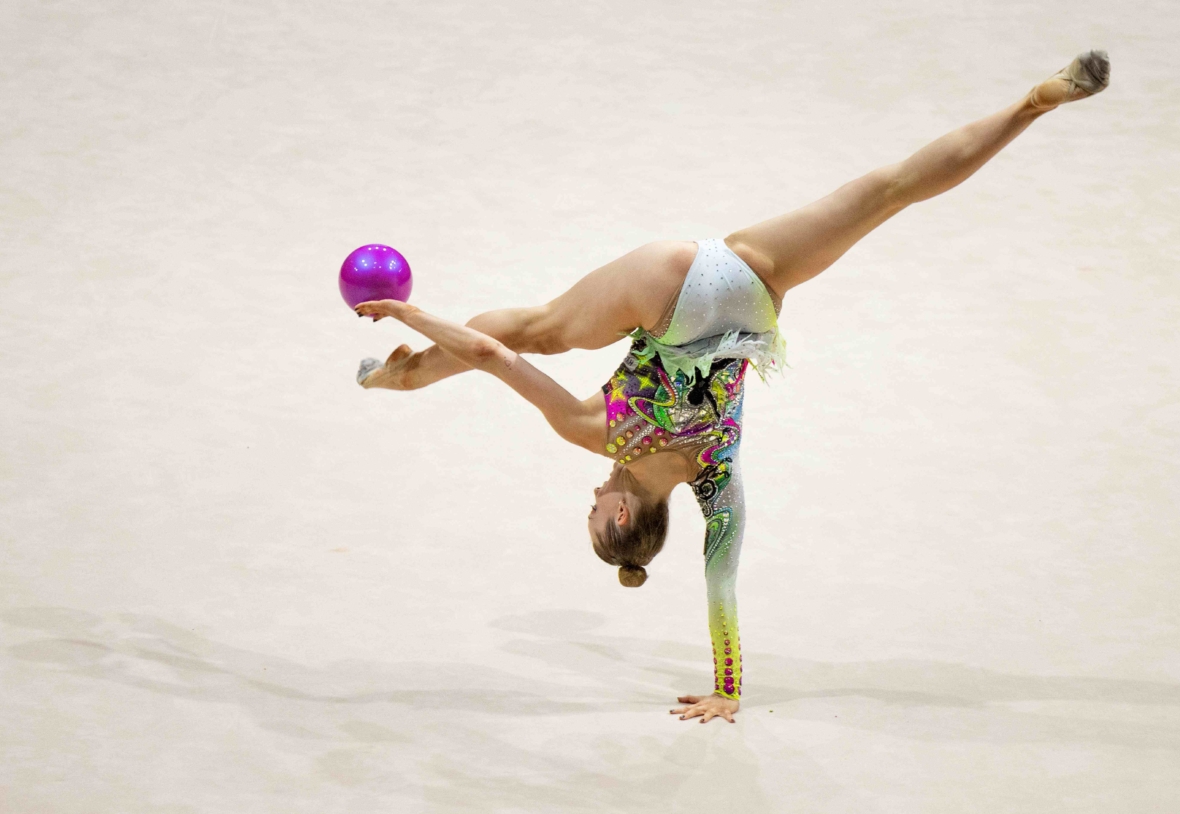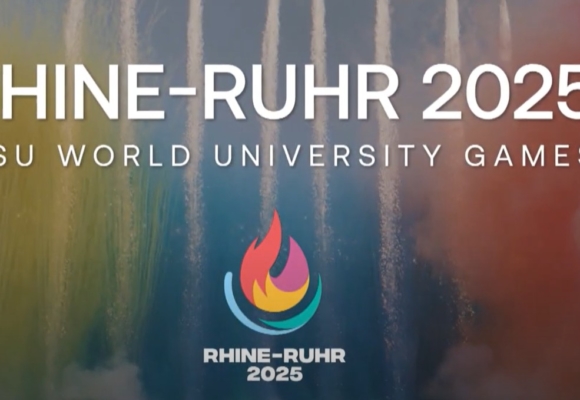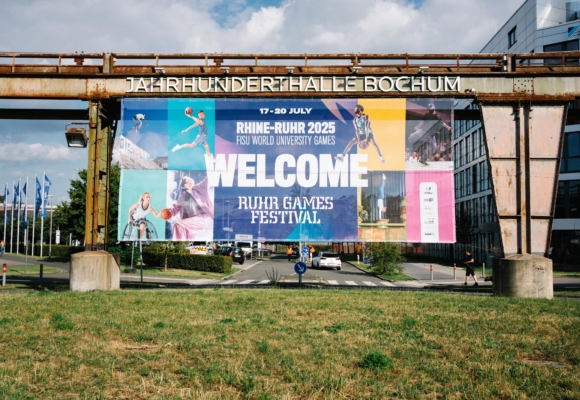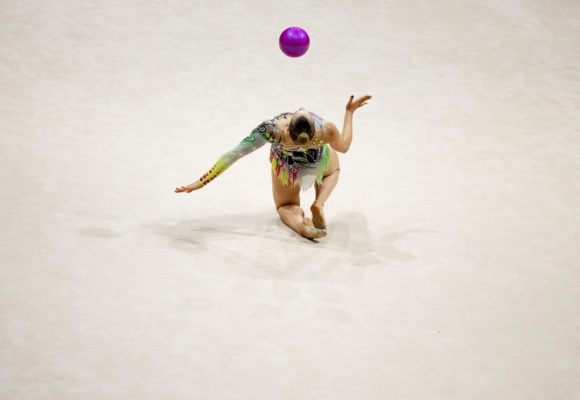Ninety seconds that determine months of training. This is the harsh reality of rhythmic gymnastics, a discipline blending elements of traditional dance and artistic gymnastics, where routines are choreographed to music, highlighting the harmony between movement and melody.
Margarita Kolosov, competing for host Germany at the Rhine-Ruhr 2025 FISU World University Games, understands firsthand what it means to handle the pressure of this sport, and the resilience required to get back up after a fall.
Balancing emotions in high-pressure sports
Friday, 18 July marked the second and final day of individual events qualification at Messe Essen. Having performed with hoop and ball on Thursday followed by ribbon and clubs on day two, the student-athlete from Potsdam had mixed feelings about her results.
“Yesterday, I was more scared, I was very nervous before. Today I was much more relaxed and like happy to be here. And after my mistake yesterday with the hoop, I took it like a little more chill. But still, I think it wasn’t enough, yeah, because there were still some mistakes today,” said Kolosov, who placed 15th out of 49 competitors in the individual all-around standings and will fight for a medal in the individual ball event on Saturday.
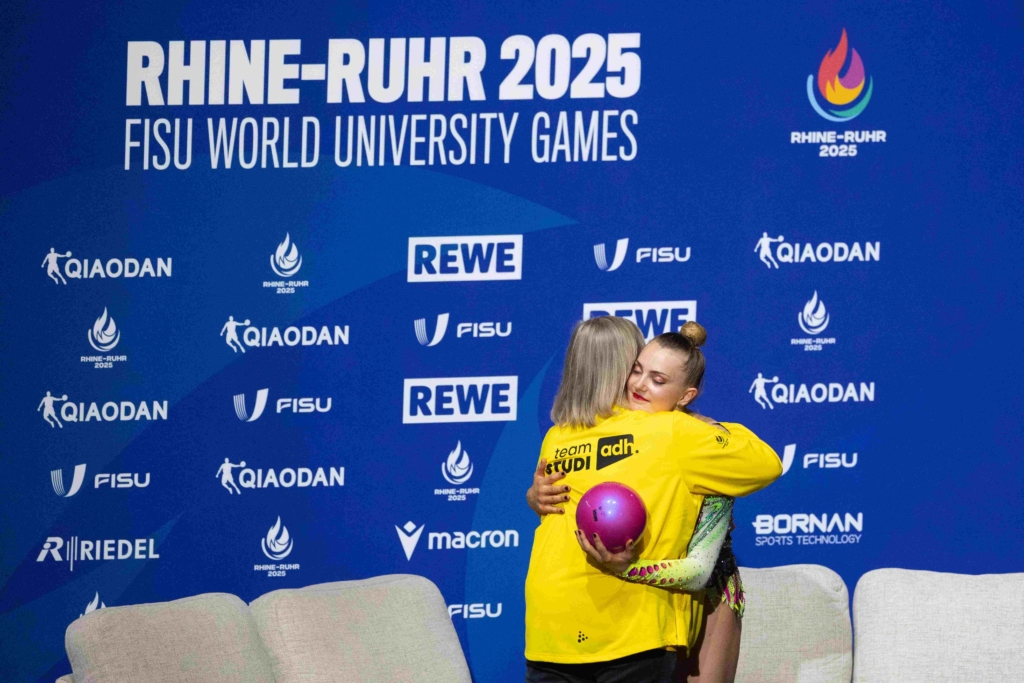
Kolosov knows well how anxiety and stress can weigh heavily on mental health, especially when competing at the highest level. The most significant example from her career is the Paris 2024 Olympic Games, where she ranked fourth in individual all-around, a result that led her into a very difficult period. However, at these FISU Games, she approaches the competition with a renewed mindset, balancing sadness with acceptance and rationality.
“Right now, I’m like, not happy with my performance. So yeah, right now it’s like sad because I worked so hard to get here, but it’s like one step out of a lot of steps, so I know there’s more to come. It’s sad that didn’t work out here at home, and like, the ‘at home’ part is the most hurtful for me, but I know that I have more competitions where I can do it better. So it’s okay,” the two-time German all-around champion affirmed firmly.
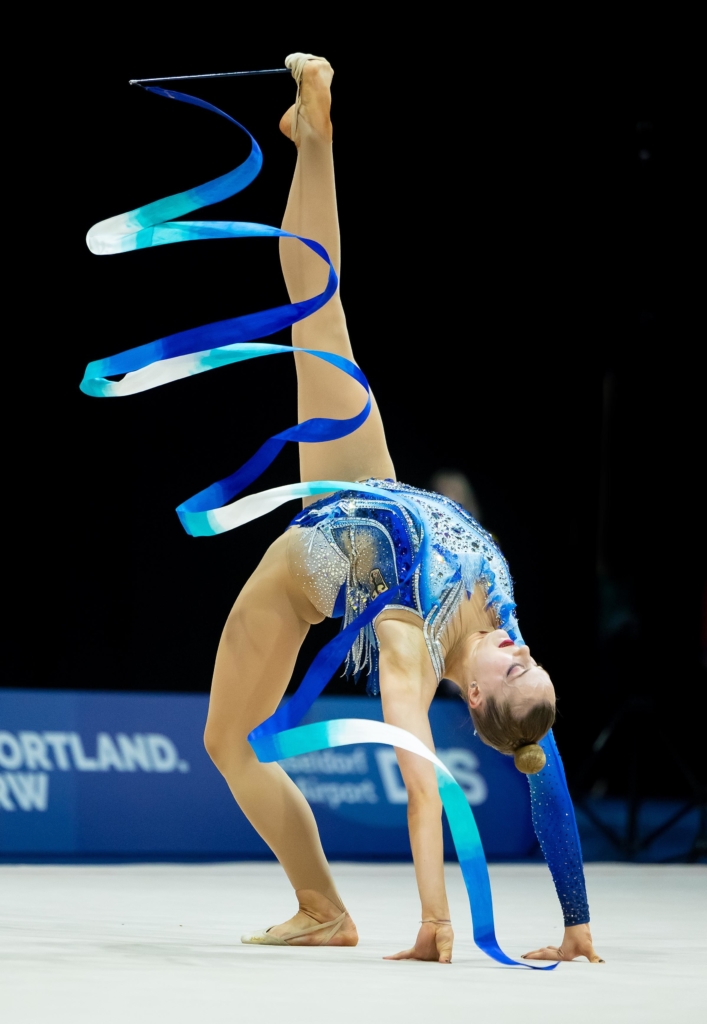
The essential role of mental strength and psychological support
Coping with pressure in high-level sport is difficult for every athlete; everyone must find what works best for them to stay focused, enjoy the moment, accept defeats, and come back stronger.
“Before competitions, I do my routines in my head. I do mental training with the routines. I also talk with a psychologist – sports psychologist – and he helps me a lot. And he also helped me a lot with the Olympic Games. After my first routine I was calling him and I was like ‘Hi, oh my god, I just did hoop’ and he was like ‘Yeah, I saw it, it was great’ and I’m like ‘Yeah, it was great’ So yeah, he’s very helpful,” Kolosov said laughing.
The 21-year-old strongly underlined the importance of psychology and seeking help from a professional. “I know that some people find it embarrassing and they don’t like it. A lot of athletes tell me, like ‘psychologists,’” she said, imitating their confused and disagreeing expression. “Like, it’s so normal, our sport is so difficult, and I think in general in sports, when you do it on a high level, it’s a lot of pressure and mentally very difficult. So, like to get through that. It’s okay to get some help.”
An historic FISU Games milestone
After learning to prioritize her mental health, Kolosov reached a significant milestone in her career and in the history of German rhythmic gymnastics: she and her teammate Anastasia Simakova became the first student-athletes ever sent by their country to compete in this discipline at the FISU Games.
“For me, it was an honour to be one of the first gymnasts to compete at the University Games, also to be one of the oldest German individual gymnasts, I think in the history of Germany, it’s also an honour,” she said. “I want to represent myself good here and maybe win something at home, like sing the German anthem, is a big dream for me.”
The first two rhythmic gymnastics gold medals of Rhine-Ruhr 2025, both in all-around competition, were awarded on 18 July, with neutral athlete Alina Harnasko triumphing individually and Azerbaijan capturing the group title.
The Rhine-Ruhr 2025 FISU World University Games take place from 16-27 July. Watch all the competitions live on fisu.tv. Click on the link to find the full schedule.
Written by Valentina Rasini, EU U-Media Ambassador, Italy
The Young Reporters Programme exemplifies FISU’s commitment to more than sports competitions. At every FISU World University Games, a group of talented aspiring sports journalists are chosen to cover the competition.

We warmly thank FISU Official Partner Qiaodan Ltd. which provides remarkable uniforms to FISU Family and International Technical Officials since 2015. Qiaodan is a valuable partner for FISU as it continued to provide its support during the postponement of events due to the global pandemic, and recently extended the relationship with FISU up to and including 2025.
